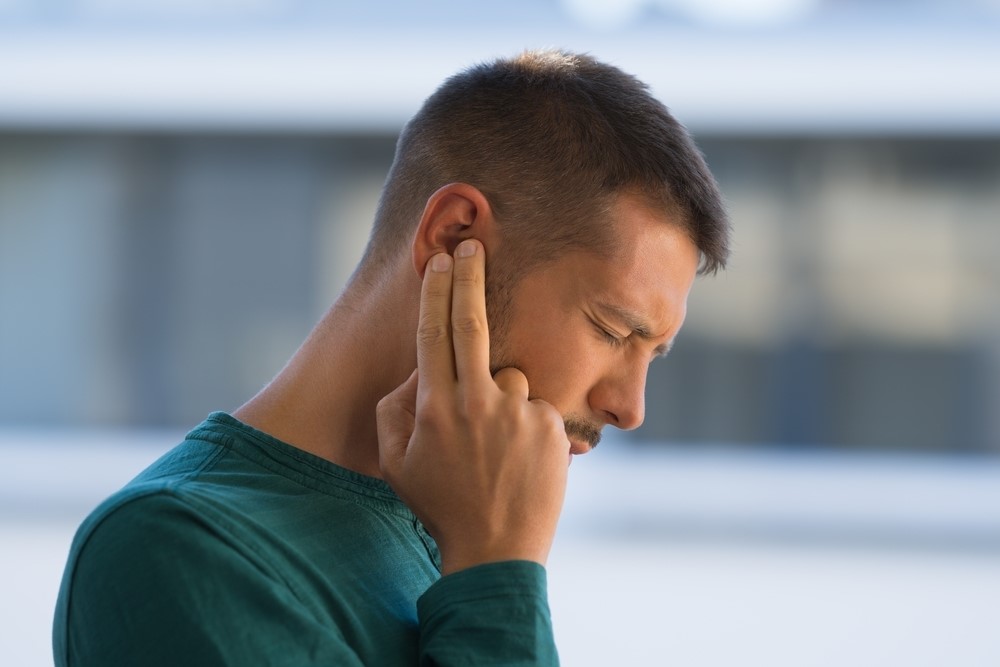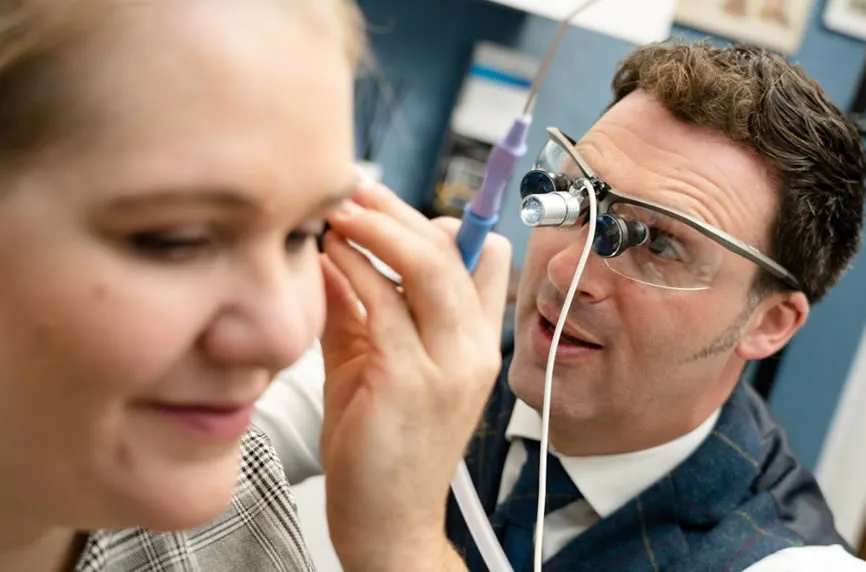Struggling with hearing? Request a hearing test appointment today.
Why Do I Have So Much Ear Wax All of a Sudden?
Do you have ear wax build up all of a sudden? If you’ve noticed you have more ear wax than usual, it could be down to a number of reasons, and in most cases, it is linked to something simple such as an ear infection, a lack of regular cleaning, your age or the amount of hair that grows within your ears.
Ear wax is a normal, harmless substance that our bodies produce to protect against germs and bacteria. It’s water-repellent and prevents the delicate inner part of our ears from becoming dry, sore, or cracked. However, an excess amount of ear wax can cause itching, irritation, and problems with hearing. Left untreated, ear wax build-ups can even block the ear canal, in which case removing the blockage is essential to restoring full hearing function.
But if you have a build-up of ear wax all of a sudden, it’s important to review the reasons as quickly as possible.
Causes of Increased Ear Wax Production
For most people, ear wax isn’t a problem, but in recent years, there have been a growing number of cases where ear wax blockages are caused by the use of cotton buds. This is one of the main culprits, where the swabs don’t extract the wax but instead push it deeper into the ear canal. You can read more about cleaning your ears without q tips here.
Other reasons you may have noticed an increase in ear wax include:
- Your age and genetics – some people naturally produce more ear wax, and changes to our glands as we age, along with coarser hair within the ear canal, create more wax.
- The use of hearing devices and in-ear headphone buds – if ear wax cannot naturally leave the ear canal or is pushed further into the ear, it can impact.
- Skin conditions like eczema can affect ear wax production, causing additional skin cells to shed and increase ear wax blockages or inflammation.
- Prolonged stress can create extra ear wax production due to higher levels of cortisol, the stress hormone.
- Injuries and infections that cause damage within your ear canal and conditions like otitis externa, better known as swimmer’s ear, can also cause you to produce more ear wax than usual.
Extra ear wax may not be immediately noticeable, but if left, it can become harder, which means the wax will not go away by itself. A blockage of hard, dried ear wax means that further ear wax production adds to the blockage, and it has an increasing impact on your hearing.
When Is Excess Ear Wax a Problem?
Ear wax in itself isn’t problematic, but if you have too much wax in your ears that causes a blockage, you might experience a number of symptoms, ranging from slight irritations to significant disorders:
- Earache and itching, especially if sleeping on the affected ear or when both ears are blocked. Earaches can become worse with time and make it hard to concentrate or sleep – if the problem is related to an ear infection, you will likely require antibiotics and pain relief along with ear wax removal.
- Trouble hearing, where your ears might feel stuffy, distorting sounds. The worse the blockage, or the more wax there is in your ears, the more pronounced the effects on your hearing.
- Dizziness and difficulty focusing on conversations. Some people experience vertigo, where they feel nauseous and generally unwell.
- Tinnitus – a ringing in the ear or both ears that can be persistent.
- Coughs and issues with your sinuses.
If accumulated ear wax is not treated or removed, it can lead to impaction. That means that the ear wax has blocked the ear canal and become dry or hard and will not disperse naturally. Over time, those blockages can lead to further loss of hearing, more severe pain and earache, and more frequent instances of dizziness and tinnitus.
We often stress the importance of regular audiology treatments since very large build-ups of ear wax can make a physical examination of the ear canal more complex yet are easily preventable.
NHS Inform recommends seeking assistance if you have the above problems and ear drops from a pharmacist haven’t relieved the issue after three to five days. However, you may also find a microsuction treatment provides rapid relief and can soothe sore, aching or itching ears very quickly.
What do our audiologists say?
I frequently encounter patients surprised by sudden hearing issues due to excess earwax all of a sudden. It’s important to understand that earwax production can fluctuate due to several factors, including your health, environment, and even stress levels. An abrupt increase in earwax can quickly lead to blockages, affecting your hearing. This situation serves as a reminder of the ear’s delicate balance and the need for regular check-ups.
Lee Fletcher.(RHAD), (BSHAA), Ba(Hons)
Can Excess Ear Wax Be a Sign of a Medical Condition?
Ear wax isn’t necessarily linked to any medical diagnosis but could indicate damage, an infection, or extra hair growth in your ear canals. Most infections are characterised by hearing loss or pain, but it is possible that you have an infection that has gone undetected.
Skin conditions can also affect your inner ears, and if you have had a cold or the flu, your ears may start producing more wax. In any of these situations, having your ear canal checked and ear wax removed, if necessary, should help, ensuring an audiologist can assess whether you require any further treatment.
If you have ear wax that is an unusual colour, such as grey or black, that usually means you have been exposed to dust or pollution – this is common with people who regularly use busy train and underground rail services. Having the ear wax safely removed will normally solve the problem.
How Does Ear Microsuction Remove a Build-up of Ear Wax?
Microsuction is an effective and advanced way to remove ear wax safely, using gentle suction to break up ear wax blockages and draw them out of the ear canal. Rather than using water, like in conventional ear syringing, microsuction is simple, pain-free and doesn’t involve any mess.
The Royal National Institute for Deaf People (RNID) encourages everyone to have ear wax professionally removed. The charity is currently running a campaign to lobby for better access to UK-wide ear wax removal services, with 2.3 million people relying on this simple procedure to prevent ear infections and further hearing problems.
We use ear microsuction in favour of syringing for client convenience but also because the technique is suited to anybody – it is gentle enough to be appropriate for people who have an ear infection that can cause a high degree of pain and soreness and for those who have had ear surgery or a damaged or ruptured eardrum.
You’ll find more information about the procedure in our guide to Ear Microsuction, including advice about how often to have your ear wax removed and tips on cleaning your ears safely at home.


 I frequently encounter patients surprised by sudden hearing issues due to excess earwax all of a sudden. It’s important to understand that earwax production can fluctuate due to several factors, including your health, environment, and even stress levels. An abrupt increase in earwax can quickly lead to blockages, affecting your hearing. This situation serves as a reminder of the ear’s delicate balance and the need for regular check-ups.
I frequently encounter patients surprised by sudden hearing issues due to excess earwax all of a sudden. It’s important to understand that earwax production can fluctuate due to several factors, including your health, environment, and even stress levels. An abrupt increase in earwax can quickly lead to blockages, affecting your hearing. This situation serves as a reminder of the ear’s delicate balance and the need for regular check-ups.